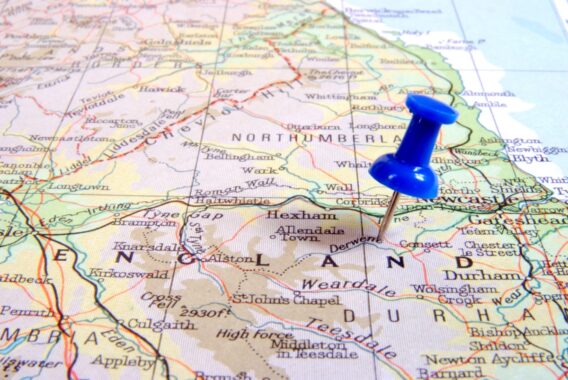National heatmap of GP pressure to be available from spring next year

An alert system for reporting pressures in general practice, with a national heatmap to show the worst affected areas, will be rolled out across England by spring next year.
The heatmap will show where practices are under most pressure as part of the General Practice Alert State (GPAS) – a similar system to the operational pressures escalation levels (OPEL) framework, already in place in hospitals.
LMCs have been leading the development of the system with the aim of escalating ‘Black status’ reports to NHS leaders. This would be equivalent to OPEL level 4 – a situation when pressure means organisations are unable to deliver comprehensive care and patient safety may be compromised.
Pulse understands it will be up to individual Integrated Care Systems (ICSs) to work out with primary care how they will make use of GPAS data.
It comes as Devon LMC agreed a pilot with the ICS to assess how to respond when practices are under ‘severe’, ‘extreme’ or ‘intolerable’ pressure.
Measures that will be considered include suspension of routine appointments and reviews, a shift to telephone triage, remote consultations for most primary care, suspension of non-core work and QOF and closure of some practices with care delivered through additional capacity at shared hubs.
The GPAS system was pioneered in Devon, where the LMC has been collecting data for the past two years.
A newsletter published on 27 October by Wessex LMCs said GPAS, which has been running since May this year, was going from strength to strength.
‘The developers of GPAS are now rolling out the system nationwide, and they are also working on a national dashboard to show a heat map of the country. This development is due to be completed in Spring 2023.’
Once all LMCs are operational, a steering group will be set up to oversee future work on the scheme, the newsletter said.
Since May, practices in Dorset have been consistently in the red zone, GPAS has shown, with practices in Hampshire and the Isle of Wight also reaching a red alert for July to September.
But collection of the data means NHS leaders are starting to take note of the pressures general practice is under and look at what primary care can realistically take on, Wessex LMC told Pulse.
Other LMCs piloting the system are starting to have conversations with local NHS teams about how it can inform policy, Pulse has also learned.
Dr Andy Purbrick, joint chief executive at Wessex LMC, said the weekly situation reports based on anonymous GPAS data from practices were being shared with their three ICS regions.
‘They are really looking at the implications and taking note,’ said Dr Purbrick, who added this was the first time GPs have been able to demonstrate the pressure they were under in the same way as hospitals.
‘We are seeing a general trend of consistent pressure across all three regions. Dorset in particular have been [alert state] red for a considerable period now.’
But he added it was the personal comments that practice managers were also able to add that was having an impact.
‘The feedback we have had from system leaders is that those personal comments are really good for highlighting the pressures on primary care,’ he said.
‘When we took this on we were clear this was about informing the system, to say we need to recognise the pressure on primary care and offer support. That’s where we are trying to get to with our ICS and have those useful conversations about the overall system.’
He added: ‘We need a whole system approach and there’s no additional funding or workforce so realistically it’s about freeing up time and that’s some of the conversations we can have locally.’
Dr Rolan Schreiber, medical secretary of Humberside LMCs, said they were quite early on in using GPAS but that having the information would help them to have discussions with system partners about pressures practices were under.
It includes a meeting with YORLMC, who are also implementing it, and the regional NHS England team in November, he said.
‘We have agreed to meet with our local NHS team to feed back to them the information we are getting.’
An NHS Devon spokesperson said the pilot scheme of what measures could be put in place in response to GPAS data had not yet been fully approved by NHS Devon and would be subject to ongoing review.
‘General practice is open and running as normal – any temporary measures to support practices would only be used if they were facing extreme operational challenges and would need to be approved at an executive level, taking into account the impact on all patients.’
NHS England declined to comment.
Related Articles
READERS' COMMENTS [6]
Please note, only GPs are permitted to add comments to articles










NHS England declined to comment.
wot a surprise !!
And…basically don’t go and work where the heat is.
Clear as mud plan.
The heat map maybe correlated to GMC tribunals and getting shafted by the employer, for slogging it away in places that leave you in the dump at night.
Surely the whole map will just be red?
We are all working far above safe capacity.
None of us can recruit.
Numbers of doctors are falling everywhere, whereas number of patients is increasing.
The heatmap is a covert intelligence excercise – which will be given to US corporates to come in and set up shop.
Locally we are seeing only 30-40% of practices reporting. The common reason cited is that reporting doesn’t change anything. Practices are – probably wrongly – concerned that the may be targeted by commissioners or CQC if they admit to struggling. My LMC shares the anonymised collated reporting with the ICB. My own ICB Locality Manager was this week reportedly unaware of the data for her patch.